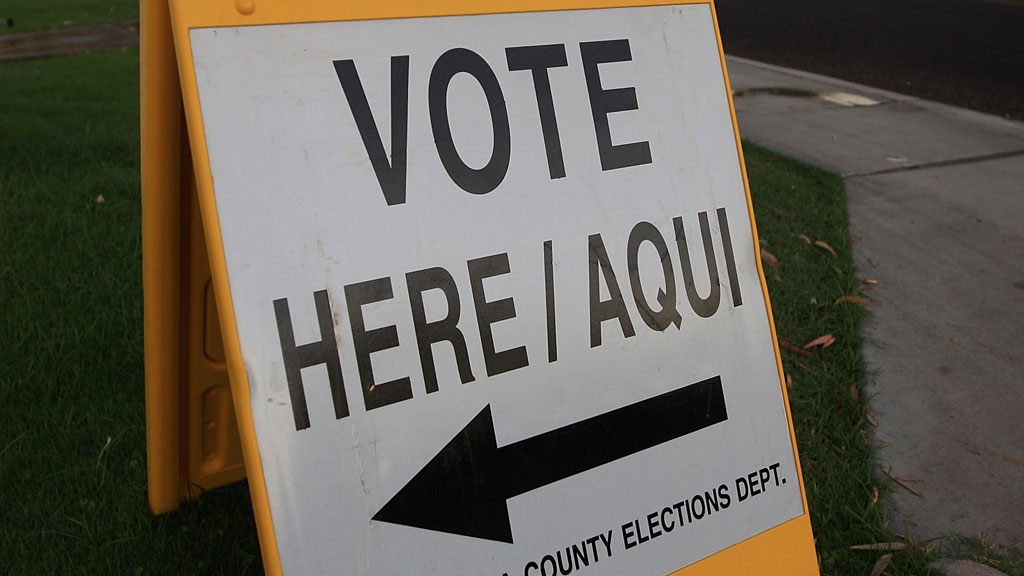Latino lessons as Romney seeks the Hispanic vote
They are one of the most crucial groups in November’s election, and both parties are desperate for their support. Now Mitt Romney has been wooing Hispanic voters – but are they buying his message?

In an election where a few thousand votes could make all the difference, America’s Latino population could hardly be more important. No wonder, then, that both Obama and Romney have been making a huge pitch for their support.
But it’s the Republicans who’ve got the biggest mountain to climb: polls show that Hispanic voters are overhwelmingly Democrat. A tracking poll by Latino Decisions shows an overwhelming 74 per cent of Hispanics favouring Obama, while Romney trails in his wake, with just 21 per cent. That is much less than John McCain managed to attract four years ago, and way behind George W Bush in 2000.
You can bet the Democrats will be ramming home their advantage, sending out former President Bill Clinton to gee up support: he enjoys a soaring 82 per cent approval rating among Latinos. But the Republicans have been making a big push, too.
Spanish language ads have been running in the swing states with significant Hispanic populations, one with the slogan “No podemos mas“, or “No we can’t”, a deliberate swipe against Obama’s famous “Yes We Can” slogan of the last campaign.
Push for votes
Activists have been holding events, knocking doors, and making calls to Hispanic supporters: Romney will be speaking to the US Hispanic Chamber of Commerce, highlighting his plans for small businesses and job creation.
Both parties fell over themselves to promote a sizeable Latino presence at their conventions: the Republicans devoted prime-time slots to rising stars like Susana Martinez and Marco Rubio.
And this week, both Romney and Obama are giving major interviews to the influential Spanish language Univision network. It was Romney’s turn first, with supporters in the University of Miami cheering him on during the live broadcast.
First, there was that little matter of an off the cuff joke Romney had made about wishing his parents had been born to Mexican parents, in a secretly recorded video at a fundraiser back in May. Romney brushed that one off.
“My dad was born of American parents who were living in Mexico… and he recognised that this is the land of opportunity, and he has been the role model and inspiration for my whole life.”
This was an effort to portray a softer, more compassionate Romney: one who said he wanted to help “the hundred per cent”. He expressed his concern that “life has become harder for Americans” and insisted he wanted to bring the country together again.
Self deportation?
Next came immigration, a tricky issue for the GOP, with hard-line laws in Republican-run states like Arizona polarising opinion. Romney himself got into hot water over a phrase he used during the primary debates, suggesting people should “self-deport”.
He told Univision what he had meant to say: “I believe people make their own choices as to whether they want to go home and that’s what I mean by self-deportation.” President Obama, he claimed, had caused the hardline backlash for failing to tackle the issue as he had promised.
But even inside the debating hall at the University of Miami, reports ABC, support for the former governor was fairly thin on the ground, claiming many students had shown up to “make fun” of the Republican candidate.
So just how important is the Latino vote anyway? There might be large Hispanic populations in states like California and Texas, but their electoral votes are not in play. Some of the most crucial swing states, like Iowa, Ohio, and Wisconsin, don’t have sigificant enough numbers of Hispanics to sway them one way or the other.
That leaves Florida, Colorado, Arizona and Nevada. But even in these states, there is no such thing as a generic Hispanic voter, with similar interests and similar voting behaviour.
Take Florida, for instance, which has one of America’s biggest Hispanic populations. The majority of them are Cuban Americans, who have historically leaned towards the Republicans, unlike voters with a Mexican or Puerto Rican background.
Fast growing population
But younger Cuban-Americans appear to be more liberal, according to leading psephologist Nate Silver. “If Democrats get 60 percent or more of the Hispanic vote in Florida, this year could mark a significant turning point.”
One thing is for certain: this is a part of America’s population which is growing fast. In 2008. around 11 million Hispanics turned out to vote – that’s 9 per cent of all those who voted. That’s up from just two percent in 1992, and numbers have been going up ever since.
Add to that the hundreds of thousands of people from Latin America who have become naturalised US citizens in the last few years.
So yes, these are voters who matter, in states, and in numbers which could make the critical difference. At this moment, in this campaign, it is Romney who faces the toughest struggle.
But both parties face a bigger problem: that old enthusiasm gap – and whether they can get their Latino supporters to turn out at the polls.
Felicity Spector writes about US politics for Channel 4 News
-
Latest news
-
Tim Booth of the band James’ on agism in music, topping the charts and AI6m

-
As India goes to the polls in the world’s largest election – what do British-Indians think?6m

-
Tees Valley: Meet the candidates in one of the biggest contests coming up in May’s local elections4m

-
Keir Starmer says public sector reform will be a struggle7m

-
Nicola Sturgeon’s husband Peter Murrell charged with embezzlement of funds from SNP1m

-




